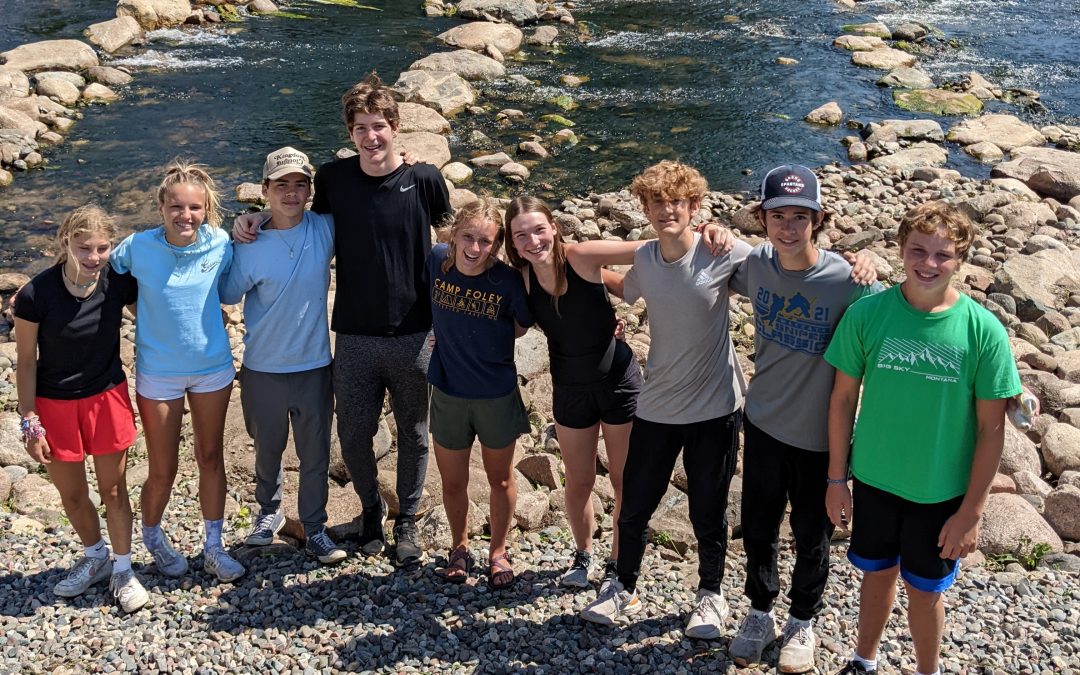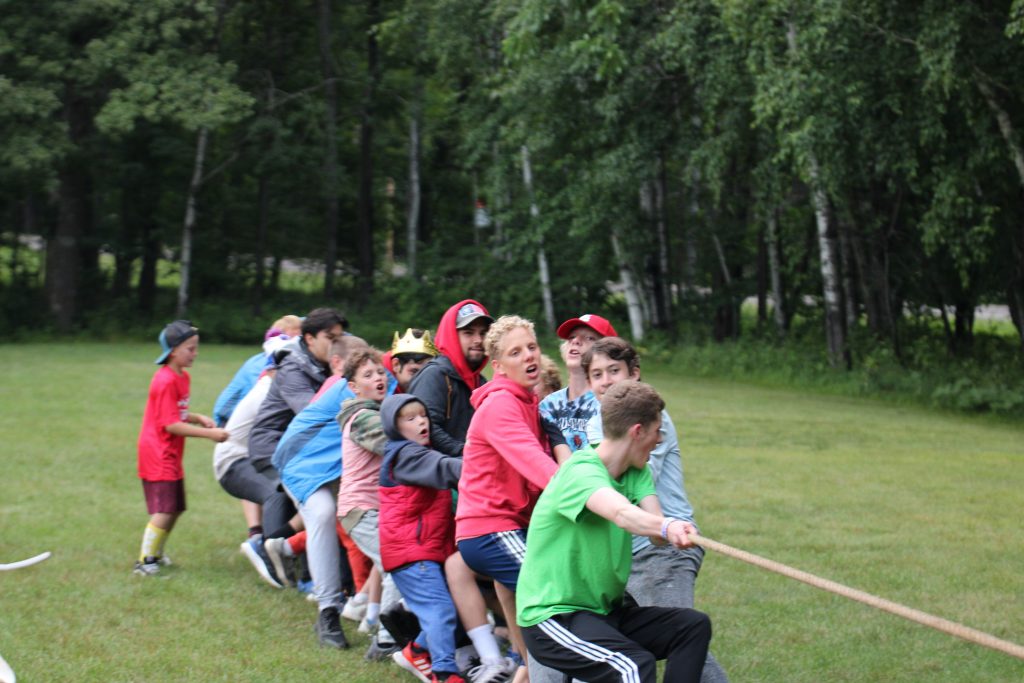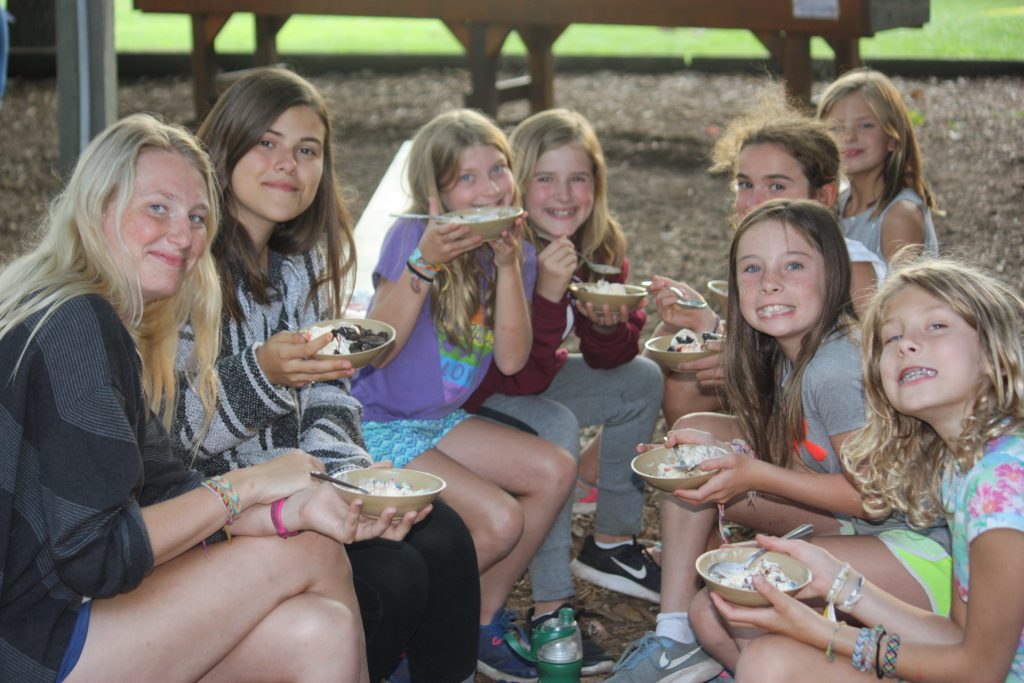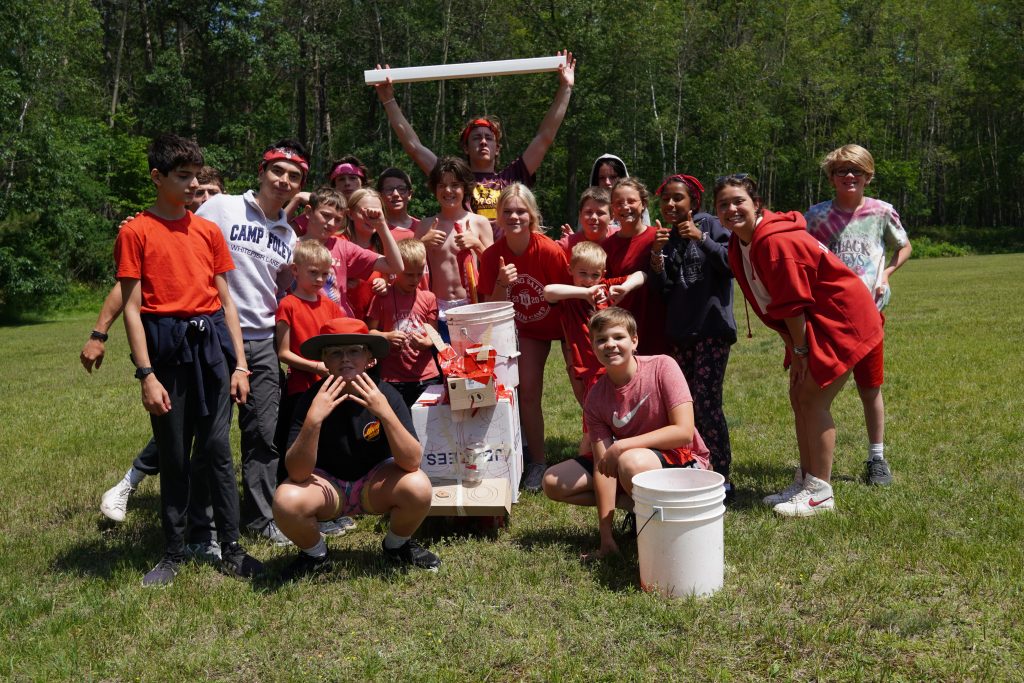Think summer camp is just for campfires and canoeing? Think again. The surprising benefits of summer camp reach far beyond the traditional activities, with impacts that may just give your child an unexpected edge in life. From nurturing a spirit of adventure to promoting mental wellness and even fostering entrepreneurial thinking, the camp provides a fertile ground for growth and learning that might just take you by surprise. Dive into our exploration of eight extraordinary advantages that will make you see summer camp in a whole new light.
Key Takeaways
- Summer camps offer a tech-free zone that enhances creativity, artistic skills, performance abilities, and environmental appreciation, helping children develop important life skills like problem-solving and teamwork.
- Camp experiences promote a spirit of adventure, teaching children valuable survival skills, increasing their appreciation for nature, and helping them develop resilience and adaptability through various outdoor challenges and adventures.
- Cultural competence, nutritional knowledge, and environmental stewardship are key aspects of the summer camp experience, fostering global awareness, healthy eating habits, and a deeper connection to and responsibility for the natural world.
1 – Unleashing Creativity Away from Screens
In an era dominated by screens, summer camps offer a refreshing escape where kids can engage in physical activity and group activities that stimulate their minds and unleash their creativity. The summer camp experience offers an environment brimming with opportunities to:
- Create memories
- Explore nature
- Enjoy the great outdoors
- Paint under the open sky
- Sculpt sandcastles on the beach
- Play games that spark the imagination
- Enact plays that cultivate performance skills
Camp activities are designed to ignite creative thinking, encourage mental stimulation, and help kids develop new skills. The camp brings children together to achieve these goals.
Summer camp offers a unique learning experience that goes beyond the screen, blending fun with education.
Inspiring Artistic Pursuits
Imagine a place where the canvas is as wide as the sky, and every cloud, tree, and bird offers artistic inspiration. At summer camp, the great outdoors becomes an open studio for campers to unleash their creativity. Activities such as painting by the lakeside or sculpting with natural materials not only foster self-expression but also promote problem-solving and collaboration. As campers work together on group projects, they learn to appreciate different perspectives, work as a team, and develop lifelong skills.
Artistic pursuits at camp are more than mere hobbies; they serve as building blocks for a lifestyle that appreciates creativity, mental stimulation, and nature.
Cultivating Performance Skills
The campfire stage at summer camp goes beyond a mere talent showcase; it facilitates the growth of confidence, communication, and camaraderie. Whether it’s acting in the camp play, playing an instrument in the camp band, or singing a solo in the camp choir, each performance opportunity is a chance for campers to develop important life skills. As they enter the spotlight, they learn to overcome stage fright, communicate effectively, and work as a team.
These experiences not only enhance their performance skills but also equip them with emotional skills that will serve them well in their future endeavors.
Imaginative Play and Storytelling
Nestled among the towering trees and echoing with the laughter of kids, summer camps serve as the perfect setting for imaginative play and storytelling. Camp activities designed around themes such as treasure hunts or fairytale adventures encourage kids to step into a world of their creation, fostering their creativity and enhancing their communication skills.
The benefits of summer camp are numerous and can greatly impact children’s lives. Summer camps offer a variety of advantages, including:
- Enacting favorite characters and spinning enchanting tales, which helps them see the world through various perspectives and fosters empathy
- Enhancing social skills through interactions with other campers
- Commemorating imagination and storytelling, which contributes to the all-round development of children
2 – Nurturing a Spirit of Adventure
The spirit of adventure is a core element of the summer camp experience. Whether hiking through the forest, navigating a ropes course, or setting sail on a lake, every day is packed with opportunities for campers to step out of their comfort zone and embrace new challenges. These experiences not only ignite a sense of thrill and excitement but also foster resilience, courage, and independence. As campers navigate through these adventures, they learn important life skills such as problem-solving, decision-making, and risk assessment.
Every adventure transcends being fun-filled activities; they lay the foundation for a lifelong love for nature and inculcate a spirit of exploration.
Discovering Thrills with Safe Risks
At summer camp, children are encouraged to take safe risks that build their confidence and resilience. Whether it’s climbing a towering rock wall, navigating a rope course, or diving into a lake, each activity is designed to push their boundaries while ensuring their safety. These experiences help children step out of their comfort zone, face challenges head-on, and develop the resilience needed to overcome obstacles.
Not only do these activities offer an adrenaline rush, but they also teach valuable life skills such as problem-solving, decision-making, and adaptability. In the end, these safe risks transform from thrilling adventures into opportunities for personal growth and character development.
Exploring New Horizons
At summer camp, every day is a new opportunity to:
- Explore new horizons
- Discover hidden trails during hikes
- Learn new skills in workshops
- Make new friends from different parts of the world
Each experience broadens campers’ perspectives and fuels their curiosity. As they navigate through these new experiences, campers not only learn about the world around them but also about themselves. They learn to adapt to new situations, handle challenges with grace, and appreciate the beauty of diversity.
In the process, they develop a sense of wonder and a spirit of exploration that stays with them long after the camp is over.
Learning Survival Skills
Summer camp transcends being a hub for fun and games; it also serves as a training center for vital life skills. Among the most valuable skills children learn at camp are survival skills. Whether it’s building a shelter, navigating through the woods, or starting a fire, each survival skill activity is designed to promote self-reliance and respect for nature. As they master these skills, children not only become more confident in their abilities but also develop a deeper connection with the environment.
Above all, these survival skills lessons inspire a sense of responsibility for preserving the environment, transforming them from mere campers into caretakers of the environment.
3 – Advancing Cultural Competence
In today’s globalized world, cultural competence is a vital skill, and summer camp is the perfect place to cultivate it. Through a diverse range of camp activities, children are exposed to different cultures, traditions, and perspectives. They learn to appreciate diversity, understand global issues, and interact effectively with people from different cultural backgrounds.
Whether it’s celebrating a festival from another culture, participating in a global issues discussion, or learning a new language, each experience enriches their understanding of the world and prepares them to be global citizens.
Celebrating Diversity Through Camp Activities
At summer camp, diversity is not just acknowledged but celebrated. Camps offer a wide array of activities that expose children to various cultures, traditions, and ways of life. These experiences help children understand and value the differences between and within cultures. Whether it’s trying a dish from a foreign cuisine, learning a traditional dance, or participating in a multicultural festival, every activity is an opportunity to learn about and appreciate diversity.
These experiences not only broaden their worldview but also enrich their personal growth and development.
Building Global Awareness
Summer camp further contributes significantly to fostering global awareness among children. Through activities like discussions on global issues, participation in international days, and interactions with campers from different countries, children gain a deeper understanding of the world beyond their immediate environment. They learn about the challenges faced by different nations, understand the interconnectedness of global societies, and develop empathy for people from diverse backgrounds.
These experiences not only broaden their perspective but also inspire them to become more responsible global citizens.
Language Immersion Opportunities
Language is a powerful tool for bridging cultural gaps, and summer camps provide ample opportunities for language immersion. Whether it’s learning a new language or improving their proficiency in a second language, language immersion programs at camp provide a unique and effective learning experience. Through interactive classes, cultural activities, and everyday conversations, children get to practice the language in a natural and immersive environment.
This process not only betters their language skills but also provides a profound understanding of the culture associated with the language.
4 – Boosting Nutritional Knowledge
Alongside outdoor activities and cultural experiences, summer camp significantly aids in enhancing children’s nutritional knowledge. Through fun and interactive activities like farm-to-table experiences, cooking classes, and nutrition workshops, children learn about the importance of healthy eating and develop practical skills for making healthier food choices.
As kids learn about the journey of food from the farm to their plate, they understand the importance of balanced meals and develop cooking skills that they can use throughout their lives.
Farm-to-Table Experiences
Farm-to-table experiences are one of the highlights of the summer camp experience. These activities give children a hands-on understanding of where their food comes from and the hard work that goes into producing it. Whether it’s planting seeds in a garden, caring for farm animals, or cooking a meal with freshly harvested ingredients, each experience is a lesson in sustainable agriculture and healthy eating.
These experiences not only teach children about nutrition but also instill in them a sense of respect and appreciation for farmers and the environment.
Cooking Skills for Life
Cooking is not just a life skill; it’s also a fun and creative activity that children love. At summer camp, cooking classes are designed to be educational and enjoyable. Children learn to:
- Prepare simple and healthy meals
- Understand the nutritional value of different ingredients
- Develop important skills like measuring, timing, and multitasking.
More importantly, cooking classes at camp inspire children to take an active role in their nutrition and make healthier food choices.
Understanding Dietary Choices
Understanding dietary choices is an important aspect of nutrition education at summer camp. Through discussions, workshops, and hands-on activities, children learn about:
- different types of diets
- the importance of balanced meals
- making informed food choices
- the impact of diet on health and well-being
- portion control
- food allergies and dietary restrictions
By participating in these activities and embracing a healthy lifestyle, children develop a better understanding of nutrition and are equipped to make healthier choices.
These lessons empower children to take charge of their nutrition and develop healthy eating habits that last a lifetime.
5 – Enhancing Environmental Stewardship
Summer camp goes beyond enjoying the beauty of nature; it also involves learning how to protect and conserve it. Camp activities are designed to enhance environmental stewardship among children. Through hands-on conservation projects, wildlife education programs, and eco-friendly living practices, children learn about the importance of protecting the environment and develop a sense of responsibility towards nature.
Whether it’s planting trees, cleaning up a local park, or learning about wildlife conservation, each activity instills in them a sense of respect and appreciation for the environment.
Hands-On Conservation Projects
Conservation projects are a big part of the summer camp experience. These hands-on projects give children a firsthand understanding of the impact of human activities on the environment and the importance of conservation. Whether it’s building birdhouses, planting native plants, or participating in a beach cleanup, each project is a lesson in environmental stewardship.
These experiences not only educate children about conservation but also inspire them to take an active role in protecting the environment.
Wildlife Education Programs
Wildlife education programs are another important aspect of environmental education at summer camp. Through interactive workshops, field trips, and hands-on activities, children learn about different species, understand their roles in the ecosystem, and learn about the threats they face.
These programs instill in them a sense of wonder and respect for wildlife and inspire them to become advocates for wildlife conservation.
Eco-Friendly Living Practices
At summer camp, children also learn about eco-friendly living practices. They learn about waste management, energy conservation, water conservation, and other practices that reduce our environmental footprint. They learn to make eco-friendly choices in their daily lives, like reusing and recycling, conserving water, and reducing energy use.
These lessons empower them to become responsible citizens who care for the environment.
6 – Fostering Entrepreneurial Thinking
Alongside outdoor activities and environmental education, summer camp cultivates entrepreneurial thinking in children. Through a variety of activities, children learn about business principles, develop critical thinking skills, and gain hands-on experience in entrepreneurship.
They learn to identify opportunities, take calculated risks, and innovate – skills that are crucial for success in the 21st-century economy.
Developing Marketable Skills
At summer camp, children get the opportunity to develop a wide range of marketable skills. Through various activities, they learn about project management, teamwork, problem-solving, and other skills that are highly valued in the job market. These experiences not only equip them with practical skills but also boost their confidence and enhance their employability in the future.
Encouraging Innovation and Problem Solving
Innovation and problem-solving are at the heart of entrepreneurial thinking, and summer camp offers plenty of opportunities for children to develop these skills. Through activities that challenge their thinking, children learn to come up with creative solutions, adapt to new situations, and overcome challenges.
These experiences not only boost their problem-solving skills but also foster a mindset of innovation and continuous learning.
Learning About Financial Responsibility
Financial responsibility is another important aspect of entrepreneurial education at summer camp. Through fun and interactive activities, children learn about:
- Budgeting
- Saving
- Investing
- Other financial concepts
They learn to make informed financial decisions and understand the value of money.
These lessons lay the foundation for financial literacy and empower them to manage their finances effectively in the future.
7 – Promoting Mindfulness and Mental Wellness
Summer camp extends beyond physical activities and skill learning; it also prioritizes promoting a child’s mental health through mindfulness and mental wellness. Through yoga, meditation, and activities that promote downtime, children learn to:
- Manage stress
- Focus their minds
- Develop emotional resilience
- Appreciate the present moment
- Develop a sense of inner peace and well-being.
Integrating Yoga and Meditation
At summer camp, yoga and meditation are integral components of the daily routine. These practices help children improve their focus, manage stress, and enhance their emotional well-being. Through guided sessions, children learn to connect with their breath, calm their minds, and cultivate a sense of inner peace.
These experiences not only boost their mental health but also equip them with tools they can use to manage stress in their everyday lives.
Emphasizing the Importance of Downtime
Downtime is another important aspect of promoting mental wellness at summer camp. Amid a packed schedule of activities, children are given time to relax, recharge, and just be. Whether it’s reading a book, journaling, or simply sitting quietly by the lake, these moments of downtime allow children to reflect on their experiences, connect with their feelings, and develop self-awareness.
Addressing Emotional Skills
At summer camp, children learn important emotional skills such as:
- Identifying and expressing their emotions
- Empathizing with others
- Managing stress
- Navigating their emotional landscape
- Developing healthy coping strategies
These skills are taught through group activities, discussions, and personal reflection, and are just as important as physical and cognitive skills.
These experiences not only boost their emotional intelligence but also enhance their overall well-being.
Bonus – Cultivating Civic Engagement and Community Involvement
Summer camp serves as more than a venue for fun and learning; it is a platform for promoting civic engagement and community involvement. Through volunteering, leadership development programs, and discussions on social issues, children learn about their social responsibilities and gain the skills to make a positive impact on their communities.
They learn to be active citizens who are engaged in their communities and committed to making a difference.
Volunteering and Service Projects
Volunteering and service projects are a key component of the summer camp experience. Whether it’s cleaning up a local park, helping out at a community event, or running a charity fundraiser, these activities teach children the value of giving back to their camp community and the surrounding areas.
They learn about the impact of their actions on their community and develop a sense of social responsibility.
Leadership Development Programs
Leadership development is another important aspect of civic engagement at summer camp. Through workshops, group activities, and mentoring, children learn about leadership principles and develop the skills to become effective leaders. They learn to communicate effectively, work as a team, and make informed decisions.
These experiences not only enhance their leadership skills but also prepare them for future roles in their communities.
Debates and Discussions on Social Issues
At summer camp, children also have the opportunity to engage in debates and discussions on social issues. These activities foster critical thinking, enhance communication skills, and raise awareness of important social issues. Through these discussions, children learn to articulate their views, listen to different perspectives, and engage in constructive debate.
They learn to be informed and active participants in their communities.
Summary
Summer camp is more than just a place for fun and games; it’s a transformative experience that fosters creativity, cultivates a spirit of adventure, advances cultural competence, boosts nutritional knowledge, enhances environmental stewardship, fosters entrepreneurial thinking, promotes mindfulness and mental wellness, and cultivates civic engagement and community involvement. It’s a journey of learning, growth, and self-discovery that goes far beyond the campgrounds. So, whether you’re a parent considering sending your child to camp, or a young camper ready for a summer of fun and learning, remember, summer camp is more than just fun and games – it’s a life-changing experience.
Frequently Asked Questions
How does summer camp foster creativity away from screens?
Summer camp fosters creativity by providing a screen-free environment that encourages imaginative play, social interaction, and exploration through activities like painting, sculpting, and enacting plays. It allows kids to express themselves artistically and develop their creative thinking skills. Embrace the opportunity for your kids to explore their creativity away from screens.
What are some ways that summer camp nurtures a spirit of adventure?
Summer camp nurtures a spirit of adventure through activities that promote safe risk-taking, exploration, and survival skills, such as hiking, ropes courses, and sailing. Embracing new challenges helps kids develop a spirit of exploration and discovery.
How does summer camp enhance environmental stewardship?
Summer camp enhances environmental stewardship by providing hands-on conservation projects, wildlife education, and eco-friendly living practices, which instill a sense of responsibility towards nature in kids. It’s a great opportunity for children to learn about the importance of protecting the environment.
How does summer camp foster entrepreneurial thinking?
Summer camp fosters entrepreneurial thinking by offering activities that develop business principles, critical thinking, and hands-on experience in entrepreneurship. It helps kids learn to identify opportunities, take calculated risks, and innovate, crucial for success in the 21st-century economy. Go ahead and explore the possibilities!
What role does summer camp play in promoting mindfulness and mental wellness?
Summer camp promotes mindfulness and mental wellness by offering activities like yoga, meditation, and downtime, which help children manage stress, focus their minds, and develop emotional resilience. These practices can have a positive impact on children’s mental well-being and overall mindfulness.





